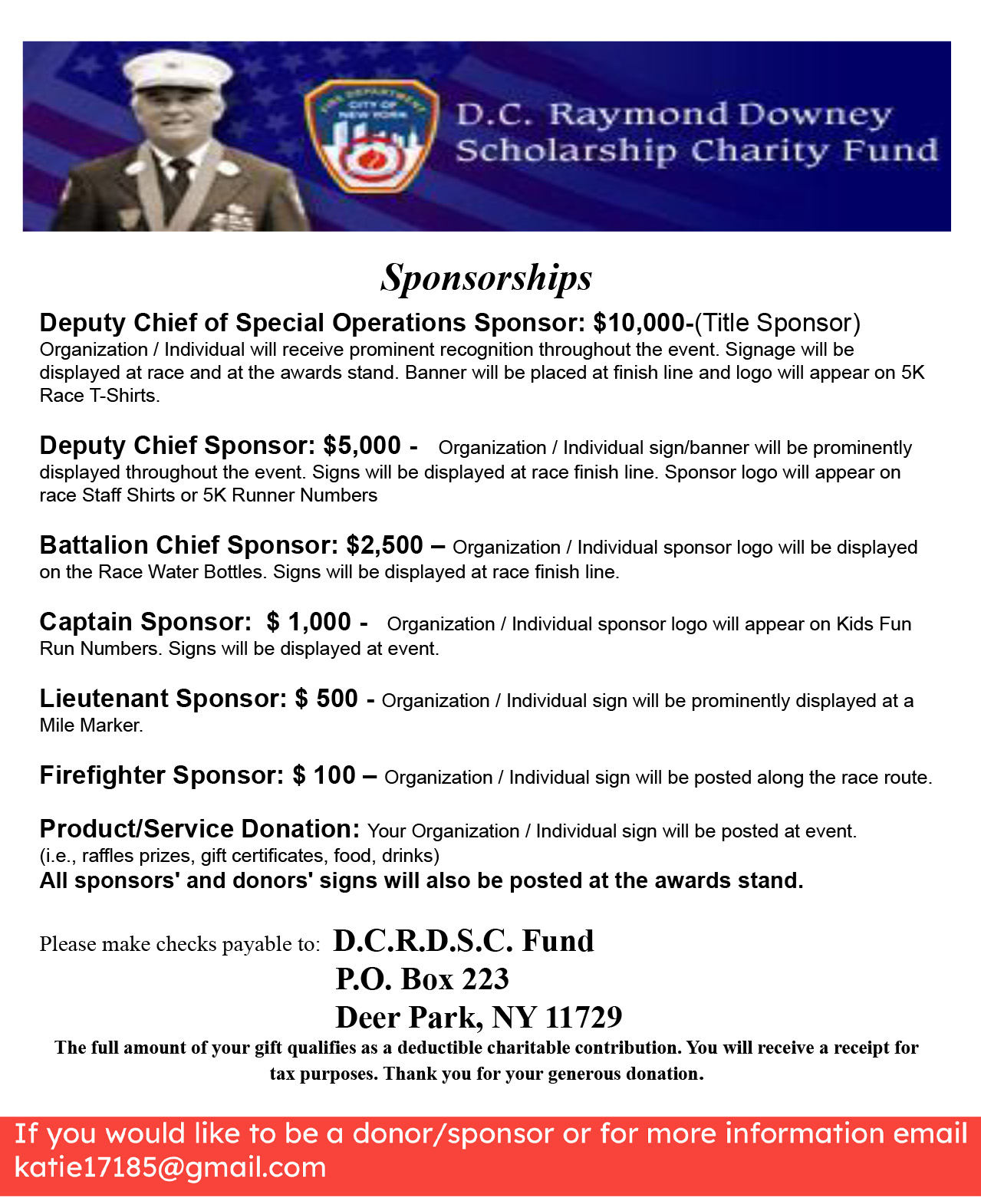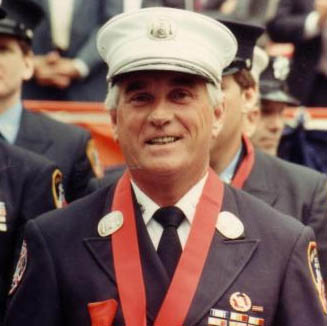But he never boasted about his accomplishments to his family, never reveled in the praise that seemed to follow him wherever he went.
Except for the manila folder he carried in his briefcase, that is. It was the only indulgence Downey allowed himself; He stuffed it with letters and accolades from a 39-year career and gave it a label in a small, tidy script: "That A Boys."
His wife, Rosalie, found the folder after Downey, 63, was lost in the World Trade Center attack. "He never complimented himself," she said. "He always just did what he had to do."
Thousands are expected to gather at 11 a.m. tomorrow at Downey's funeral in Deer Park. When they stand in line to enter Sts. Cyril and Methodius Church, when they deliver their eulogies, when they console his family, the mourners are unlikely to share Downey's reluctance to cite his achievements.
His knowledge of how buildings fall apart was so legendary that at national firefighting conferences, whole rooms would go quiet when he walked in. "He was kind of like a rock star. He was idolized," said Hal Bruno, chairman of the National Fallen Firefighters Foundation.
His expertise was sought not only within the five boroughs but at disasters around the country. Downey directed recovery work at the Oklahoma City disaster and in the 1993 bombing of the World Trade Center. He also helped pioneer an urban search-and-rescue program that mobilizes local firefighters to respond to disasters nationwide.
Downey, fellow firefighters said, had a knack for instantly assessing a disaster scene and then inventing a novel solution. In Oklahoma, for example, one of the biggest obstacles to rescuers was a giant concrete slab they had dubbed "Mother" that dangled precariously amid the wreckage. Downey thought the slab should be cinched up against the side of the building. Engineers and other experts disagreed, offering their own suggestions. In the end, "We eventually did what Ray told us to do," said Gary Marrs, the recently retired chief of the Oklahoma City Fire Department.
Downey also made frequent trips to Washington, serving on a congressional advisory panel on domestic terrorism and lobbying politicians to give local firefighters more money. In an interview with Newsday in 1997, Downey warned that the next war would be fought in an urban setting.
"He had been warning everyone of this for years," said Joe Allbaugh, director of the Federal Emergency Management Agency. For Downey, "it wasn't a matter of if, it was a matter of when."
What dazzled firefighters and politicians alike was not his way with words - Downey had a terse, reserved style - but his heroic resume. An ex-Marine, Downey joined the department in 1962 and served in two midtown ladder companies before joining Brooklyn's Rescue 2, an elite unit charged with rescuing endangered firefighters. In 1972, Downey was promoted to lieutenant and assigned to an engine-and- ladder company in East Harlem that earned the nickname "the Fire Factory" because it fought so many blazes.
In 1980, after advancing to captain and serving in other units, Downey returned to Rescue 2 as its leader. There, in the busiest squad in the city, colleagues say, Downey's reputation blossomed.
"He approached a fire straight on," said Lee Ielpi, a recently retired firefighter from Rescue 2. "The easy thing to do would be to unscrew your head at a major incident. But he knew exactly what had to be done."
John Barbagallo worked in Rescue 2 with Downey until his retirement in 1992. "He was the best fire officer I've ever known," Barbagallo said. "And when you have a good leader, you'd follow him into hell."
To his five children - fire Lt. Chuck Downey of Commack, fire Capt. Joseph Downey of West Islip, Ray Downey Jr. of Babylon, Marie Tortorici of Deer Park and Kathy Ugalde of Deer Park - Downey was a strict yet loving father who kept his work separate from his family life and encouraged them to channel their energy into sports. When they were growing up, Downey would sometimes work longer shifts just so he could make it to a son's wrestling match or a daughter's soccer game.
"He always had that Marine attitude - that tough exterior," said his son Ray, a physical-education teacher. "But once you got behind that, he really was a softie."
Downey's body has not been found. Eyewitnesses have said he was last seen in the Marriott hotel after the first tower had collapsed. He may have been heading to the second tower to evacuate firefighters when it came down, Chuck Downey said.
It may seem darkly ironic that a man who achieved international acclaim for his familiarity with rubbled disasters would himself die in one.
To his family and friends, it makes perfect sense. When a situation turned deadly, Downey would often order his men out just as he was running in.
Sometimes, Rosalie Downey says, she still talks to her husband, a man she met more than 40 years ago when they flirted through a glass partition in a Manhattan bank. She asks him why he didn't stay out when he led other firefighters to safety that day.
But, she says, she knows better than that. "Then I tell myself, Ray would have never lived with himself."














